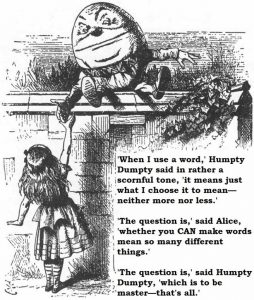 Please could we stop using the word ‘open’ in relation to anything to do with singing? I realise that teachers and voice scientists may have specific meanings for this word in different contexts, but I am concerned that a) students don’t necessarily have a clear understanding of the different uses of the word, b) we in the voice community are misunderstanding each other because we can’t be clear about each other’s definitions and application of the word ‘open’. Here’s my problem ….
Please could we stop using the word ‘open’ in relation to anything to do with singing? I realise that teachers and voice scientists may have specific meanings for this word in different contexts, but I am concerned that a) students don’t necessarily have a clear understanding of the different uses of the word, b) we in the voice community are misunderstanding each other because we can’t be clear about each other’s definitions and application of the word ‘open’. Here’s my problem ….
- ‘Open the jaw’ (aka ‘open the mouth’) – a) enlarge the front aperture (ie open the teeth at the front of the mouth), in order to create a divergent resonator, most likely leading to raising the back of the tongue, lowering the tongue dorsum, and possibly reducing the gap between the 1st & 2nd formant b) drop the back of the jaw, in order to decrease the pharyngeal space, and raise the first formant.
- ‘Open the vowel’ – a) increase the distance between the front/centre of the tongue and the hard palate, by lowering the tongue b) enlarge the front aperture of the mouth c) drop the back of the jaw, or ‘yawn’ d) try and create a bigger space / feeling in the back of the mouth or jaw (without necessarily knowing how to) e) create a more ‘open’ sound (uh?)
- ‘Open feeling’ – a) a sensation – partly physical, partly acoustic perception – of comfort when singing b) do something (unspecified) with the jaw, tongue, or pharynx to ‘open’ the voice / sound (again, unspecified), so that you feel more ‘open’ (uh?)
- ‘Open throat’ – a) a sensation of comfort, freedom, and lack of tension in the throat when singing, which could be felt with a diverse range of pharyngeal shapes for any given singer when linked to skilful resonance and breath management b) ‘open the throat’ is sometimes equated to (and confused with) opening the jaw, which could be dropping at the back, or enlarging the front aperture
- ‘Open up your voice’ – uh?
- ‘Open sound, ‘open the sound up’ – uh?
- ‘Open’ one thing, in order to ‘open’ something else: ‘open’ the mouth/jaw/throat/voice, in order to get a more ‘open’ sound/feeling/voice (pick any combination …) – uh?
So, here are some suggested (hopefully clearer) alternatives that avoid the word ‘open’:
- part the front of the teeth (increase resonator divergence), or reduce the front aperture (decrease resonator convergence)
- drop the back of the jaw (decrease pharyngeal space, and raise the 1st formant), or reduce the drop in the back of the jaw (increase pharyngeal space, and lower the 1st formant)
- raise the tongue (reduce space between tongue and hard palate, and raise 2nd formant) or lower the tongue (increase space between tongue and hard palate, and lower 2nd formant)
- soften the feeling in the back of the mouth, tongue or throat (thereby reducing muscle contraction in those areas)
Here is a cautionary note from Lewis Carroll: “When I use a word,” Humpty Dumpty said, in rather a scornful tone, “it means just what I choose it to mean—neither more nor less.” “The question is,” said Alice, “whether you can make words mean so many different things.” “The question is,” said Humpty Dumpty, “which is to be master—that’s all.” (‘Through the Looking-Glass, and What Alice Found There’, 1872)
